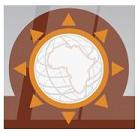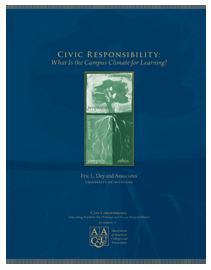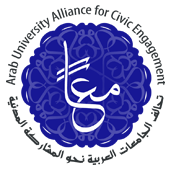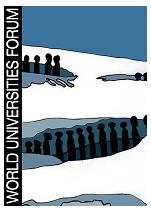November 2009 Newsletter
 |
|
| November 3, 2009 | The Talloires Network E-Newsletter |
|
In This Issue
Newest Members Dubai School of Government (UAE) Xavier University- Ateneo de Cagayan (Philippines) Universidad de Costa Rica (Costa Rica) Effat University (Saudi Arabia) To see a full list of our Not a member of the Talloires Network? Learn how to
Talloires Website Remember to visit our website and look at these features: Google Map showing our member universities
Resources
About the Talloires Network Innovations in Civic Participation and the Jonathan M. Tisch College of Citizenship and Public Service at Tufts University serve as the Secretariat of the Talloires Network.
Contact Us Susan Stroud Rob Hollister Elizabeth Babcock John Pollock
Talloires Network Steering Committee Lawrence S. Bacow, Chair John J. DeGioia Juan Ramón de la Fuente Brenda Gourley Mónica Jiménez de la Jara Shamsh Kassim-Lakha Goolam Mohamedbhai José Ignacio Moreno León Sari Nusseibeh Janice Reid |
Update from the Chair: President Larry Bacow The increasing number and diversity of our member institutions will make this an exciting year for the MacJannet Prize for Global Citizenship, which recognizes outstanding civic engagement programs at our member universities. The first year of the Prize was a resounding success, and the second annual competition is now underway. With twice as many members as we had this time last year, we look forward to another outstanding pool of nominations. The prize represents a unique opportunity to learn more about and recognize the great work being done by our new members. I encourage you all to visit our website to learn more about the Prize and to nominate a program. Reminder: MacJannet Prize call for nominations Saint Joseph University holds "Operation 7th Day Fair" Theewaterskloof International Community Development Project, MacJannet Prize 2009 Second Place Winner Higher education and development in Africa Dell Social Innovation Competition, Student Funding Opportunity Call for Chapters: Higher Education, Emerging Technologies, and Community Partnerships Editors: Melody Bowdon, PhD (University of Central Florida) and Russell Carpenter, PhD (Eastern Kentucky University) The Funding and Development of Community University Research Partnerships in Canada Civic Responsibility: What Is the Campus Climate for Learning?
For a complete list of upcoming events, visit our website>>
Third International Symposium on Service-Learning: "Service-Learning in Higher Education: Educators, Communities, and Students." Athens, Greece. November 22-24, 2009
University-Community Engagement Conference 2009. Penang, Malaysia. November 23-26 2009 "It Takes a Village: A Regional Faculty Training on Community-Based Learning." American University in Cairo, January 3-4, 2010
World Universities Forum 2010. Davos, Switzerland. January 9-11, 2010.
Sample Syllabi/Course Outlines which include Community Service-Learning
|
| Forward this message to a friend | +001 (202) 775.0290 | |
 Several countries have linked higher education to economic development with great success, including Finland and South Korea. Africa, where an upcoming study of university systems across eight countries has unearthed contradictory notions of the role of the university, could draw on international best practice to encourage more flexible, differentiated, networked and development-focused higher education systems better placed to support economic growth. Read the full article at
Several countries have linked higher education to economic development with great success, including Finland and South Korea. Africa, where an upcoming study of university systems across eight countries has unearthed contradictory notions of the role of the university, could draw on international best practice to encourage more flexible, differentiated, networked and development-focused higher education systems better placed to support economic growth. Read the full article at  Steven Schwartz, Vice-chancellor of Macquarie University in Australia, writes "The central ethical premise of universities has changed fundamentally. The discovery and dissemination of knowledge has been replaced by the desire to exploit it. Can anyone today imagine a university giving a valuable vaccine away? In fact, the government encourages universities to do just the opposite – to patent our discoveries and capitalise on our intellectual property." Read the full article at
Steven Schwartz, Vice-chancellor of Macquarie University in Australia, writes "The central ethical premise of universities has changed fundamentally. The discovery and dissemination of knowledge has been replaced by the desire to exploit it. Can anyone today imagine a university giving a valuable vaccine away? In fact, the government encourages universities to do just the opposite – to patent our discoveries and capitalise on our intellectual property." Read the full article at  The editors call for manuscripts that document and assess partnerships between institutions of higher education and K-12 schools, nonprofit organizations, government agencies, and corporations that have been made successful (or even unsuccessful in interesting ways) in part through the use of emerging and evolving digital technologies. Topics or sites might include service-learning; internships; volunteer programs; cooperative education; distance-learning; continuing education; professional schools such as law, medicine, education, and nursing; community development programs including alumni relations and fundraising; and/or sponsored research. Chapter proposals are due 30 December. Please contact
The editors call for manuscripts that document and assess partnerships between institutions of higher education and K-12 schools, nonprofit organizations, government agencies, and corporations that have been made successful (or even unsuccessful in interesting ways) in part through the use of emerging and evolving digital technologies. Topics or sites might include service-learning; internships; volunteer programs; cooperative education; distance-learning; continuing education; professional schools such as law, medicine, education, and nursing; community development programs including alumni relations and fundraising; and/or sponsored research. Chapter proposals are due 30 December. Please contact  This publication by Eric L. Dey and his associates at the University of Michigan, sponsored by the AAC&U, includes data that suggest a wide gap between campus aspirations and student experiences of civic learning and action on campus. It presents findings from a unique campus climate assessment tool—administered in 2007 to 24,000 students and 9,000 academic administrators, faculty, and student affairs professionals at twenty-three colleges and universities—and assesses the perceptions of these four constituent groups regarding campus opportunities for contributing to a larger community. The survey includes questions about the importance of campus learning, the degree to which students are encouraged to develop civic awareness and skills, and the practices that advance students’ civic commitments.
This publication by Eric L. Dey and his associates at the University of Michigan, sponsored by the AAC&U, includes data that suggest a wide gap between campus aspirations and student experiences of civic learning and action on campus. It presents findings from a unique campus climate assessment tool—administered in 2007 to 24,000 students and 9,000 academic administrators, faculty, and student affairs professionals at twenty-three colleges and universities—and assesses the perceptions of these four constituent groups regarding campus opportunities for contributing to a larger community. The survey includes questions about the importance of campus learning, the degree to which students are encouraged to develop civic awareness and skills, and the practices that advance students’ civic commitments. 


